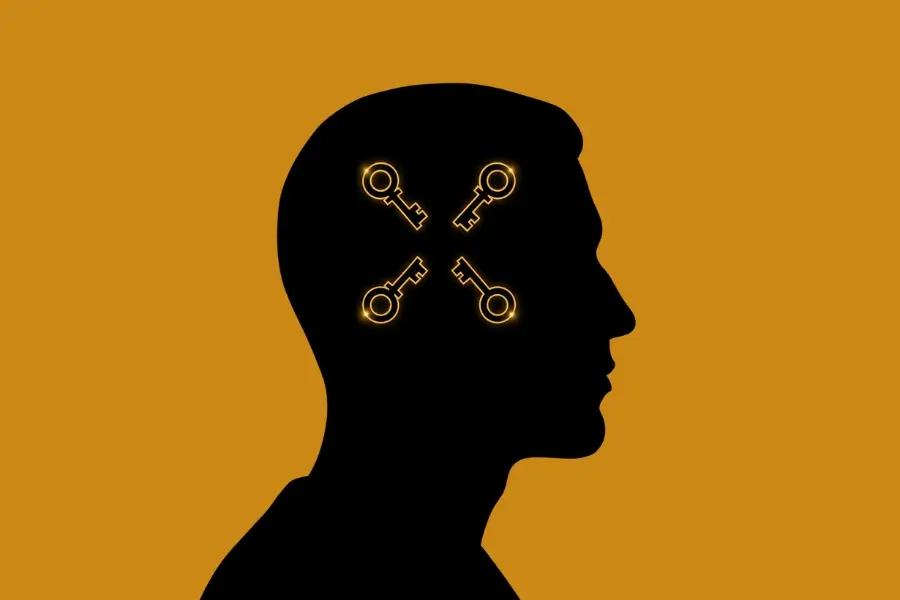We’ve all been there. Standing at a crossroads, second-guessing every choice.
Wondering if we’re smart enough, talented enough, or just plain good enough. That nagging voice in your head that whispers “What if you mess this up?”
That voice? It’s self-doubt, and it’s more common than you might think.
This feeling is basically that internal critic that questions your abilities and decisions. It can stem from past experiences, fear of failure, or the pressure to be perfect.
The good news? While self-doubt might feel overwhelming, it’s absolutely something you can learn to manage and overcome.
Table of Contents
What Is Self-Doubt? (A Definition)
Self-doubt is that uncomfortable feeling when you question your own judgment, abilities, or decisions.
It’s like having a pessimistic roommate in your brain who constantly points out everything that could go wrong.
You know that feeling when you’re about to hit “send” on an important email and suddenly think, “Wait, does this sound stupid?”
Or when you’re in a meeting and have a great idea but don’t speak up because you convince yourself it’s probably not that good anyway? That’s this inner critic in action.
When these doubts take hold, it clouds your confidence and makes everything feel unclear. Instead of trusting your instincts, you get stuck in endless loops of “what if” scenarios.
The Meaning of Self-Doubt
Here’s the thing about questioning yourself, it’s not the same as being realistic or humble.
Confidence means believing in your ability to handle whatever comes your way. Self-doubt assumes you probably can’t.
That inner voice loves to feed on overthinking. One small worry becomes a spiral of worst-case scenarios.
Before you know it, you’re paralyzed by indecision, afraid to move forward because you might be wrong.
Assessing Your Level of Self-Doubt
Not sure how much this feeling is affecting your life? Ask yourself these questions:
How often do you second-guess decisions you’ve already made? If you’re constantly wondering “Did I do the right thing?” these doubts might be running the show.
Do you frequently seek validation from others before taking action? While getting advice is smart, needing approval for every decision might signal that you don’t trust your own judgment.
When something goes wrong, what’s your first thought? If it’s “I should have known better,” second-guessing yourself has likely become your default response.
What Causes Self-Doubt?
These feelings don’t just appea out of nowhere. It usually builds up over time.
Sometimes it comes from other people’s opinions. Maybe a teacher once said you weren’t “math smart,” or a parent constantly corrected your choices.
These outside voices can become internal ones, playing on repeat in our minds.
Past mistakes are another big trigger. This inner critic loves to turnisolated incidents into proof that we can’t be trusted to make good decisions.
Then there’s the pressure to be perfect. Social media doesn’t help – everyone else seems to have their life figured out while you’re just trying to get through Tuesday.
How We Deal With Self-Doubt (But Sometimes In The Wrong Way)
When uncertainty hit, we often cope in ways that seem helpful but actually make things worse.
Procrastination is a big one. If you’re not sure you can do something well, why not put it off?
The problem is that waiting rarely makes the doubt go away – it usually makes it stronger.
Some people become overachievers, working twice as hard to prove they’re good enough. But this approach is exhausting and doesn’t address the real issue.
People-pleasing is another common response. If everyone else is happy with you, maybe you don’t have to question yourself so much.
The trouble is, you can’t control other people’s opinions.
How to Overcome Self-Doubt
The real work of overcoming self-doubt starts with building genuine confidence from the inside out.
First, understand that your worth isn’t based on achievements or other people’s approval. You have value simply because you’re you.
Building real confidence means focusing on growth rather than perfection. Instead of trying to avoid all mistakes, start seeing them as information.
Want to dive deeper into building unshakeable confidence? Check out these 7 powerful shifts to unlock charisma, confidence & real presence that can transform how you show up in the world.
Learning to be okay with making mistakes is huge. When you’re not terrified of getting something wrong, you can make decisions more freely.
Self-compassion plays a big role here too. Try talking to yourself the way you’d talk to a good friend who was struggling.
Tips to Stop Self-Doubt
Here are some practical ways to start quieting that critical inner voice:
Practice positive self-talk. Instead of “I always mess things up,” try “I’m learning and getting better with practice.”
These mindset shifts are just the beginning. For more advanced techniques on developing mental strength, read about building a strong mind so powerful it scares people.
Use genuine affirmations. Skip the generic statements. Try something believable like “I can handle whatever comes my way.”
Focus on your strengths and past successes. Keep a list of things you’ve done well. When that voice creeps in, remind yourself of evidence that contradicts it.
Practice self-compassion daily. When something doesn’t go as planned, ask yourself: “What would I tell a friend in this situation?”
Getting Rid of Self-Doubt with Self-Trust
Building self-trust happens through small, consistent actions over time.
Start by keeping small promises to yourself. If you say you’re going to call your mom this weekend, do it.
These might seem insignificant, but they’re building evidence that you can count on yourself.
Get honest about your feelings and needs. Uncertainty often grows when we ignore our instincts.
Live according to your values, even when it’s uncomfortable. When your actions align with what matters to you, you naturally feel more confident.
Trust your ability to figure things out as you go. You don’t need all the answers before you start.
Final Thoughts on Self-Doubt
Here’s the truth: veryone experiences these feelings sometimes. Even the most confident people you know have moments where they question themselves.
The difference is they’ve learned not to let those moments define them or paralyze them.
Self-doubt might always pop up from time to time, especially when you’re trying something new. But it doesn’t have to run your life.
Be patient with yourself as you work on this. Building confidence and self-trust takes time, but the results are worth it.
Remember, you’ve already survived 100% of your worst days. You’ve figured out problems before, and you can do it again.
The goal isn’t to never feel uncertain again. It’s to feel uncertain and move forward anyway, trusting that you have what it takes to handle whatever comes next.
Because honestly? You do.


